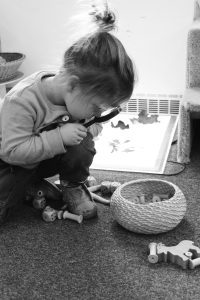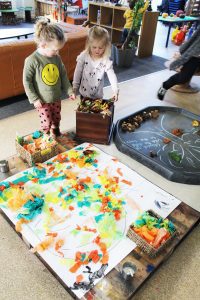Adel Inspirations- The importance of Settling Into Pre-School
Part 1
Adel Inspirations
Starting preschool is a monumental milestone in every child’s life. It marks the first time many children step into an environment away from their home and parents, where they begin to interact with a broader world of peers, teachers, and structured activities. This transition, while exciting, can also be overwhelming for both children and their families. This is where the process of “settling in” becomes essential. It isn’t just about helping children feel comfortable in a new environment—it lays the groundwork for their emotional, social, and cognitive development.
Why settling into preschool is so important.
Building Emotional Security
One of the most immediate benefits of helping children settle into preschool is promoting emotional security. Young children thrive when they feel safe, supported, and nurtured. At home, they rely on their parents or caregivers to provide this sense of security, but at preschool, they need to develop trust in their new environment and the adults who care for them. At Inspirations each family will have a key person who will spend more time supporting and tracking their child’s progress.
A well-planned settling-in period allows children to gradually adapt to their surroundings, helping to ease separation anxiety. Inspirations practitioners and parents work together to ensure the child understands that preschool is a safe place where their needs will be met. This foundation of emotional security is crucial because a child who feels safe and happy is more open to exploring, learning, and forming positive relationships.
Supporting Social Development
Preschool is often a child’s first experience in a group setting with peers. Settling in helps children navigate this new social environment. They learn to share, take turns, communicate, and play cooperatively with others. During the early days of preschool, children might be shy or unsure, and some may find it difficult to connect with the other children. A thoughtful settling-in period helps children gradually learn how to form friendships, recognise social cues, and resolve conflicts.
Children also learn the basics of emotional regulation through their interactions in preschool. Staff play a key role in modelling and guiding appropriate behaviour, teaching children how to express their emotions constructively, and helping them navigate challenges. As they settle in, children become more comfortable expressing their needs, feelings, and thoughts, which is crucial for their future relationships.

Establishing Routine and Independence
Starting preschool introduces children to routines, which help create predictability and stability. Settling in gives children time to adjust to a new daily schedule—learning when it’s time for circle time, snack time, or free play. This predictability helps reduce anxiety and gives children a sense of control over their day.
Additionally, settling into preschool encourages independence. During this period, children are gently guided to take on new responsibilities, like packing their bags, using the bathroom on their own, or tidying up after activities. With time, these tasks become second nature, boosting their confidence and sense of competence.
Next week we will look at positive attitude toward learning and parent-teacher relationships.
-Deborah, Adel Inspirations

